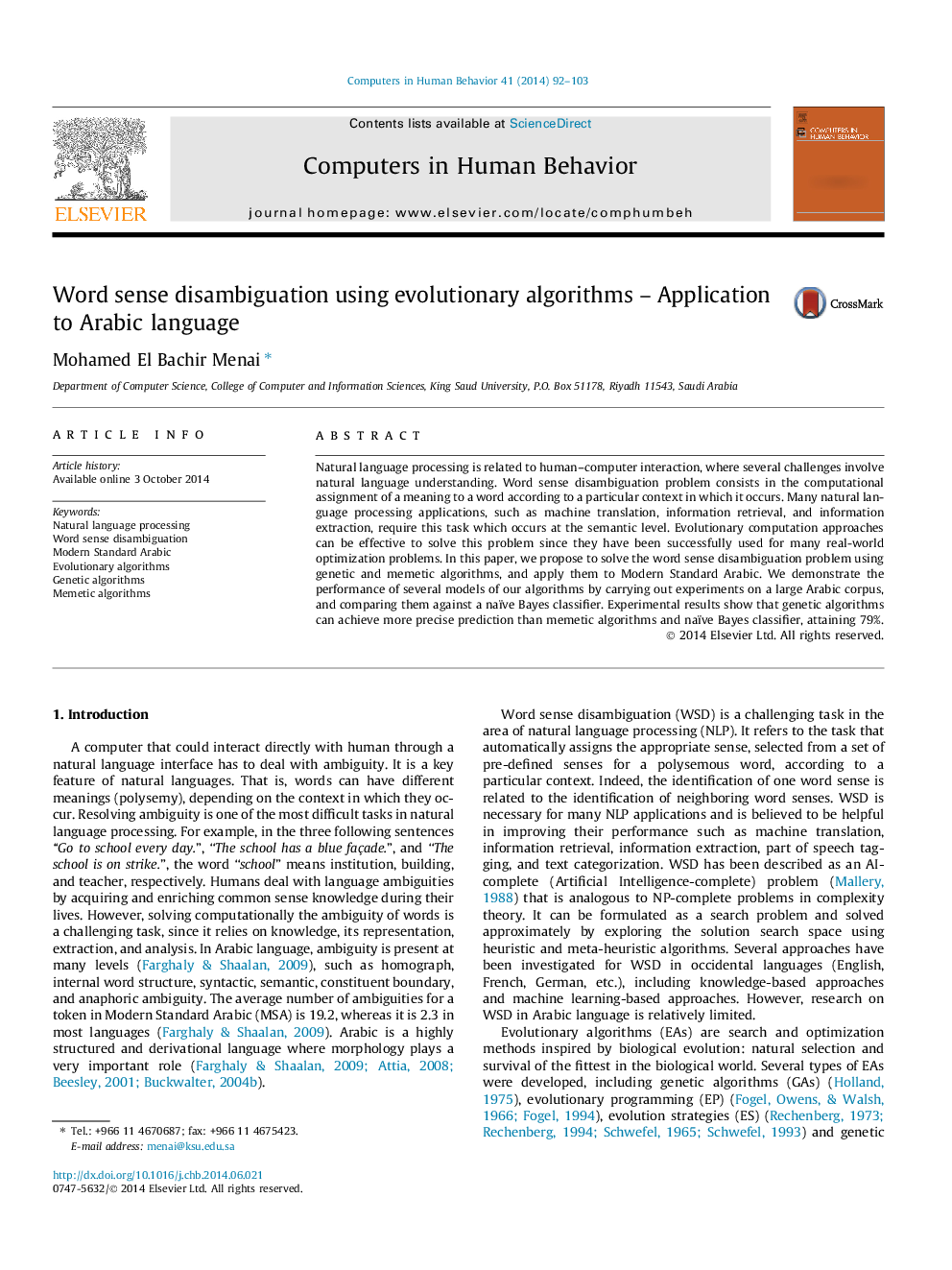| کد مقاله | کد نشریه | سال انتشار | مقاله انگلیسی | نسخه تمام متن |
|---|---|---|---|---|
| 350379 | 618443 | 2014 | 12 صفحه PDF | دانلود رایگان |

• Genetic and memetic algorithms are used to solve the word sense disambiguation problem.
• Applicability of these algorithms to Modern Standard Arabic is demonstrated by quantifying their potential benefits.
• Genetic algorithm outperforms memetic algorithm and naïve Bayes classifier, attaining 79% precision and 63% recall.
Natural language processing is related to human–computer interaction, where several challenges involve natural language understanding. Word sense disambiguation problem consists in the computational assignment of a meaning to a word according to a particular context in which it occurs. Many natural language processing applications, such as machine translation, information retrieval, and information extraction, require this task which occurs at the semantic level. Evolutionary computation approaches can be effective to solve this problem since they have been successfully used for many real-world optimization problems. In this paper, we propose to solve the word sense disambiguation problem using genetic and memetic algorithms, and apply them to Modern Standard Arabic. We demonstrate the performance of several models of our algorithms by carrying out experiments on a large Arabic corpus, and comparing them against a naïve Bayes classifier. Experimental results show that genetic algorithms can achieve more precise prediction than memetic algorithms and naïve Bayes classifier, attaining 79%.
Journal: Computers in Human Behavior - Volume 41, December 2014, Pages 92–103